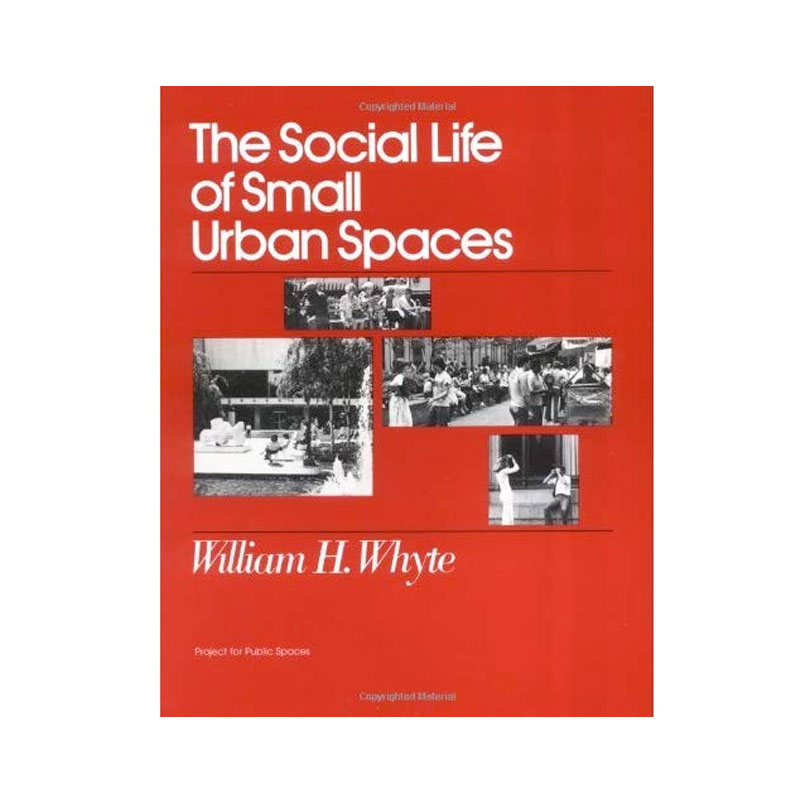The Social Life of Small Urban Spaces [2] by William Whyte
William Whyte started work in 1969 on the Street Life Project, studying the various public spaces around New York City. He produced a documentary which summarized his findings and analysis. He pointed out the factors which impacted on the success or failure of these plazas as public spaces. This documentary is a seminal work on environmental behavior, detailing the impact of physical design of plazas on the social behavior of its users.
In 1980, Whyte summarized his findings in the book The Social Life of Small Urban Spaces.
Whyte’s findings and analysis on increasing visitors and social engagement in plazas include:
Comfortable places to sit and relax – Whyte proved that increasing places for sitting improved the number of visitors for the plazas. He recommended that places for sitting be comfortable and not be mere architectural design elements. He liked moveable chairs because they gave people flexibility in terms of whom to sit with and where to sit.
Presence of food – One of Whyte’s famous quote was about how food helps seed a place with activity. He added that food brings in people, who in turn bring in more people.
Street food vendors – Whyte noted that street food vendors add to the vitality of the plaza. They provide food and encourage people to stay longer.
Seamless access – Whyte recommended that plazas be easily accessible from the street. He noticed that people tended not to visit plazas whose elevation were much higher or lower than street level. He described them as less welcoming.
Comfort – Aside from seating areas, Whyte also studied the effect of the sun. His documentary showed how people searched for and stayed in plaza areas where the sun shone.
Gender – Whyte looked out for the presence of women and found that there were more women in plazas with more visitors.
Theory of “triangulation” - Whyte pointed out that certain objects, sculptures, or physical element in a plaza help trigger conversations among strangers.
Whyte’s findings continue to be followed and applied to public places. Fred Kent, one of Whyte’s research assistants for the Street Life Project, founded the nonprofit organization Project for Public Spaces (PPS) [1]. Inspired by Whyte’s theories, the Project for Public Spaces continues research, project development, and advocacy work for developing good public spaces.
Resource website: https://www.pps.org/article/wwhyte/
'What Makes a Successful Place', Project for Public Spaces, (2018) <https://www.pps.org/article/grplacefeat>.
William Hollingsworth Whyte, The Social Life of Small Urban Spaces (Washington, D.C: Conservation Foundation, 1980).
